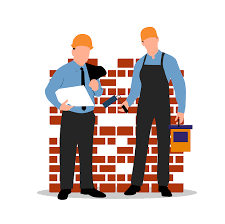The Critical Role of Manual Handling Industrial Training for Healthcare Workers in Ireland
In the fast-paced and demanding environments of healthcare settings, staff often face the challenges of lifting, moving, and handling patients safely. This is where manual handling industrial training comes into play. Understanding the significance of this training not only enhances employee safety but also ensures compliance with health and safety regulations. This article delves into the essential components of manual handling industrial training, highlighting the unique needs of healthcare workers in Ireland.
Why is Manual Handling Industrial Training Important?
Manual handling is a critical skill set necessary for many healthcare professionals, including nurses, physiotherapists, and emergency medical technicians. The nature of their duties often requires them to lift, push, pull, or carry patients and equipment. Here’s why manual handling industrial training is essential:
- Injury Prevention: Improper lifting techniques can result in serious injuries, including back strains and musculoskeletal disorders.
- Compliance with Regulations: Organizations must adhere to the Health and Safety at Work Act and related legislation in Ireland that mandates proper training.
- Enhanced Efficiency: Training teaches staff how to manage physical tasks efficiently, leading to smoother operations and better patient care.
- Promoting a Safety Culture: Regular training fosters a culture of safety, encouraging staff to prioritize their well-being and that of their colleagues.
Key Components of Manual Handling Industrial Training
A comprehensive manual handling industrial course covers several key areas:
- Understanding Ergonomics: Training helps workers learn optimal body mechanics and how to adjust their posture to minimize strain.
- Risk Assessment: Workers are trained to identify potential hazards in their environments and how to mitigate these risks.
- Safe Lifting Techniques: Practical demonstrations and hands-on practice sessions enable workers to learn the safest ways to lift and move patients or equipment.
- Use of Aids and Equipment: Employees learn to use assistive devices effectively, such as hoists and wheelchairs, to enhance safety.
Benefits of Certified Manual Handling Industrial Training
Investing in certified manual handling industrial training for your healthcare staff offers numerous advantages:
- Certified Credentials: Completing a recognized training program provides certification that can enhance career prospects.
- Improved Patient Care: When staff are trained properly, it reflects in the quality of care provided to patients, leading to better patient outcomes.
- Reduced Insurance Costs: Fewer workplace injuries can result in lower insurance premiums for healthcare organizations.
Finding the Right Manual Handling Course in Ireland
When searching for a manual handling industrial course online or in-person, consider the following factors:
- Certification: Ensure the course is accredited by relevant bodies.
- Course Content: Examine the syllabus to ensure it covers all essential aspects of manual handling relevant to the healthcare sector.
- Trainer Qualifications: Look for courses led by experienced trainers with in-depth knowledge of manual handling and healthcare settings.
- Flexibility: Choose training options that fit your staff's schedules, whether through online courses or onsite training sessions.
Conclusion
For healthcare workers in Ireland, manual handling industrial training is not just a legal requirement but a vital aspect of ensuring safe and effective patient care. By prioritizing training, healthcare organizations can mitigate risks, enhance employee safety, and ultimately improve service delivery. For more information on manual handling industrial certification in Ireland, feel free to reach out to us at [email protected] or visit our website at www.irish-manualhandling.ie.



 349,500 Offered Certificates
349,500 Offered Certificates
 24/7 Online Training
24/7 Online Training
 Money Back Guarantee
Money Back Guarantee
 Fully Accredited Courses
Fully Accredited Courses
